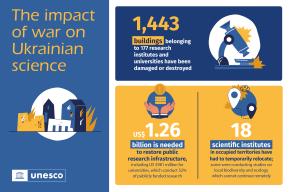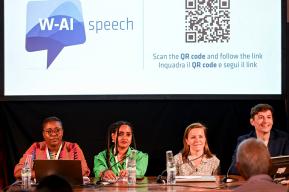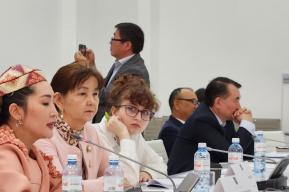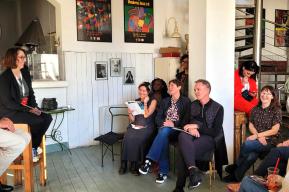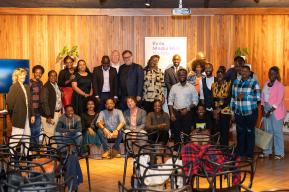News
UNESCO strengthens its financial support for Ukrainian journalists
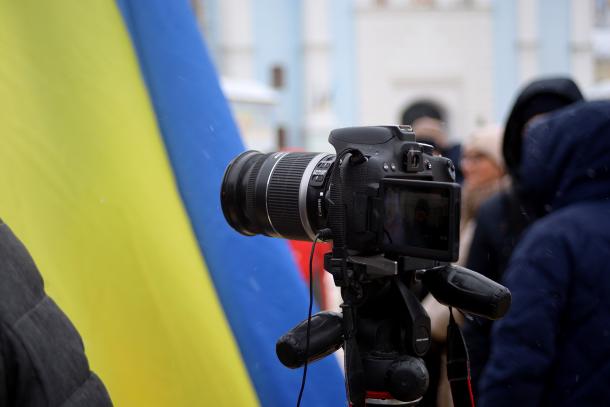
To support Ukrainian citizens' access to verified conflict-sensitive information, UNESCO has implemented a series of emergency measures, including emergency grants to Ukrainian journalists, allowing them to continue their crucial work with editorial independence.
Through the course of two rounds of grant support, so far a total of 360 journalists received financial support, out of over 2,000 applications. Such assistance was made possible by UNESCO’s cooperation with the World Food Programme (WFP) in 2022, as well as specialized civil society partners.
A first round of 160 grants had been administered through the International Federation for Journalists (IFJ) and the National Union for Journalists of Ukraine (NUJU).
Lviv Media Forum administered the second round of support in the autumn of 2023, providing grants to 200 journalists. Among the 200 selected applicants, 47 were men and 153 were women. The journalists, selected by an independent jury of media experts and civil society, were from nearly all regions of Ukraine, with the highest numbers coming from Kyiv region, followed by Dnipro, Odesa, Kharkiv, Mykolaiv, Lviv and Poltava regions.
Testimonies from Ukrainian journalists
Some of the journalists that received the support have been interviewed by UNESCO and partners.
Anastasia Bereza, journalist from Kyiv, reported that the emergency grant helped her to launch her own media "Striy" specialised in covering the impact of the war on veterans and on the families of killed soldiers".
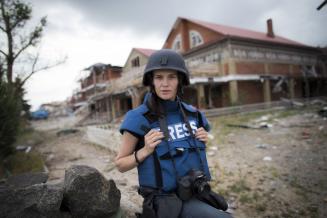
The financial support from UNESCO gave me an opportunity to take the first steps — to pay for the designer's work, corporate communications, e-mail, and buy a domain. The process of applying for a grant and receiving it was as simple and convenient as possible. Thank you to all involved organizations for timely support of Ukrainian journalists in difficult times.
Ivan Antypenko, freelance journalist with different media outlets, including Grunt.media, MOST, Hromadske.ua and Radio Liberty, emphasized how important this support is specifically for freelancers.
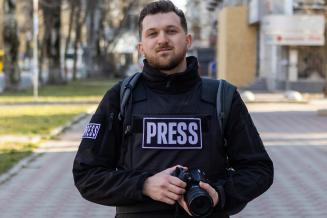
Ukrainian journalists continue to cover the war and important events in Ukraine, despite objectively lower interest from international agencies. However, the overall attention to Ukraine depends on the quality of our media's work. Therefore, I am convinced that Ukrainian journalists who truly professionally perform their job need support: psychological, material, and professional.
Olha Zyma, journalist, chief editor of "Tochka Dostupu", emphasized the mental toll on journalists caused by the war.

Ukrainian journalists are doing a very important job, and most of them are doing it very qualitatively now. However, for the most part, this work is sustained primarily by enthusiasm, as there are those who find themselves in distress, having lost their homes, offices, and minimal means of existence. Some have also lost the internal resources to implement socially important professional plans.
Nataliia Biriukova, an experienced Orbita television journalist (Pokrovsk, Donetsk Region) shoots footage every day, showing how people live and try to find something positive in the current situation. One of her works for the online magazine Svoyi has won the first prize in the creative competition of the National Union for Journalists of Ukraine “Information Front 2022”. She is raising three children.
Despite the systematic shelling of Pokrovsk and the city’s lack of water supply, she continues to live and work there. Nataliia used the grant to address health issues that had recently arisen.
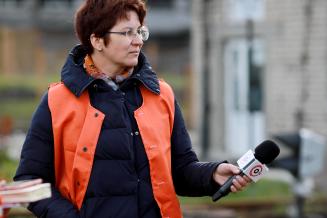
It's very difficult to travel to shoot reports and see the destroyed streets where you grew up, where you shot news about improvements for 20 years. (…) There are now craters from explosions on the roads and destroyed houses along them (…) Every resident of our region lives in hope: they hope that ‘a shell will not reach’ and that everything will be limited to fear. We maintain psychological balance by assisting the country continue to live.
Ian Dobronosov, a photo-reporter of the Telegraph publication, works in many regions of Ukraine, especially on the front line.
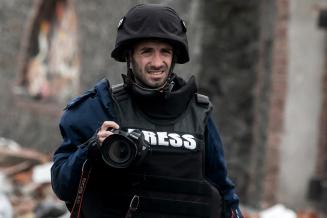
Sometimes people ask me how I make a living during the war. I am not making any money. I use my savings to pay for traveling expenses and solving technical issues. I am very grateful to international financial donors who value journalism and pay attention journalists like us. I am glad NUJU cooperates with UNESCO. This allows identifying the people who really need help.
This assistance was organized in collaboration with the World Food Programme (WFP), Lviv Media Forum and the National Union of Journalists of Ukraine (NUJU), and was made possible thanks to the flexibility of the Multi Donor Programme (MDP), alongside the emergency response mechanisms of the Global Media Defence Fund (GMDF) and the International Programme for the Development of Communication (IPDC) as well as the generous support from the People of Japan.
UNESCO is committed to continuing to support the safety of Ukrainian and international journalists and media workers inside Ukraine so that they can provide factual, conflict-sensitive, and verified information of public interest to the population, with editorial independence.



